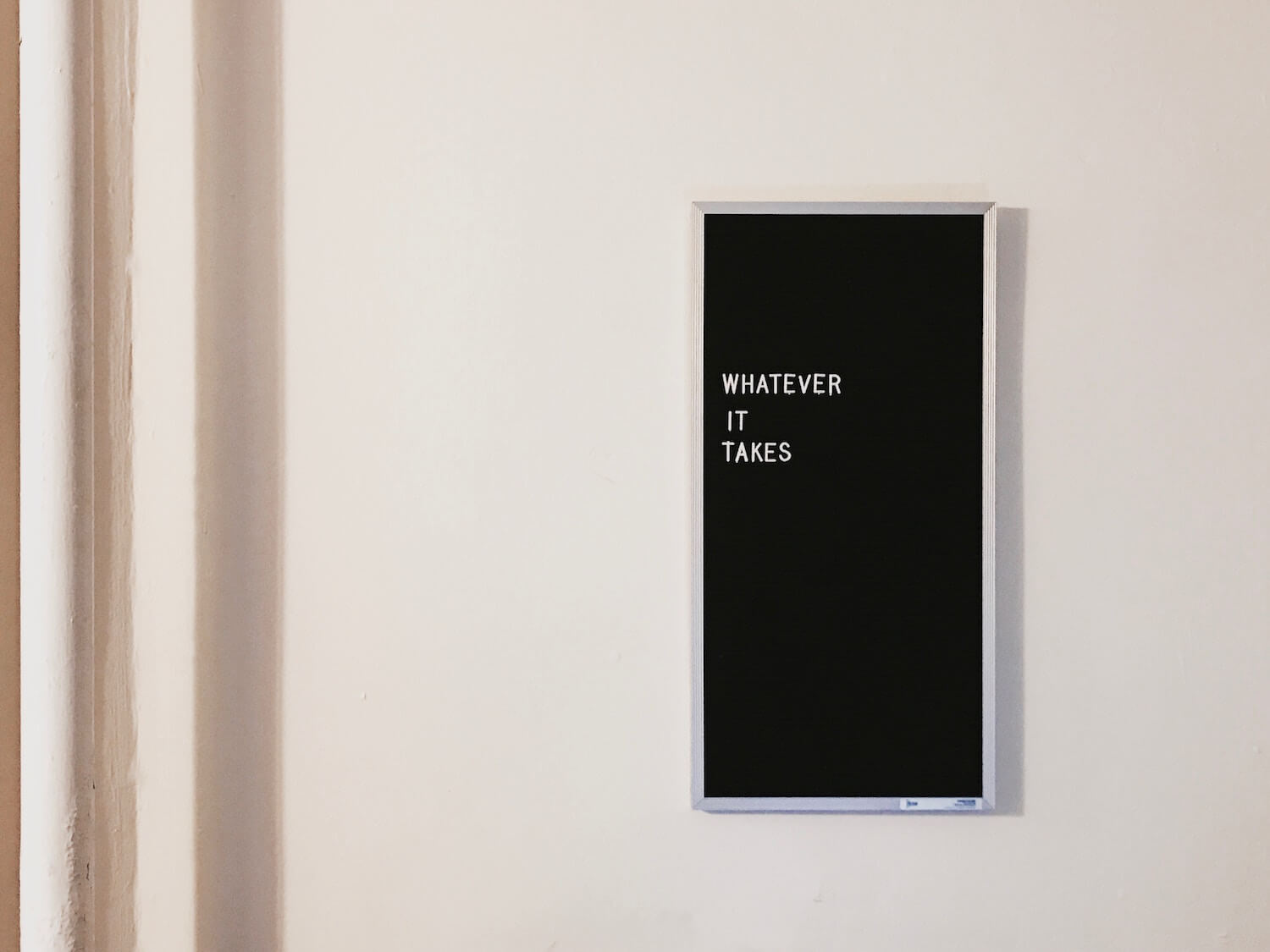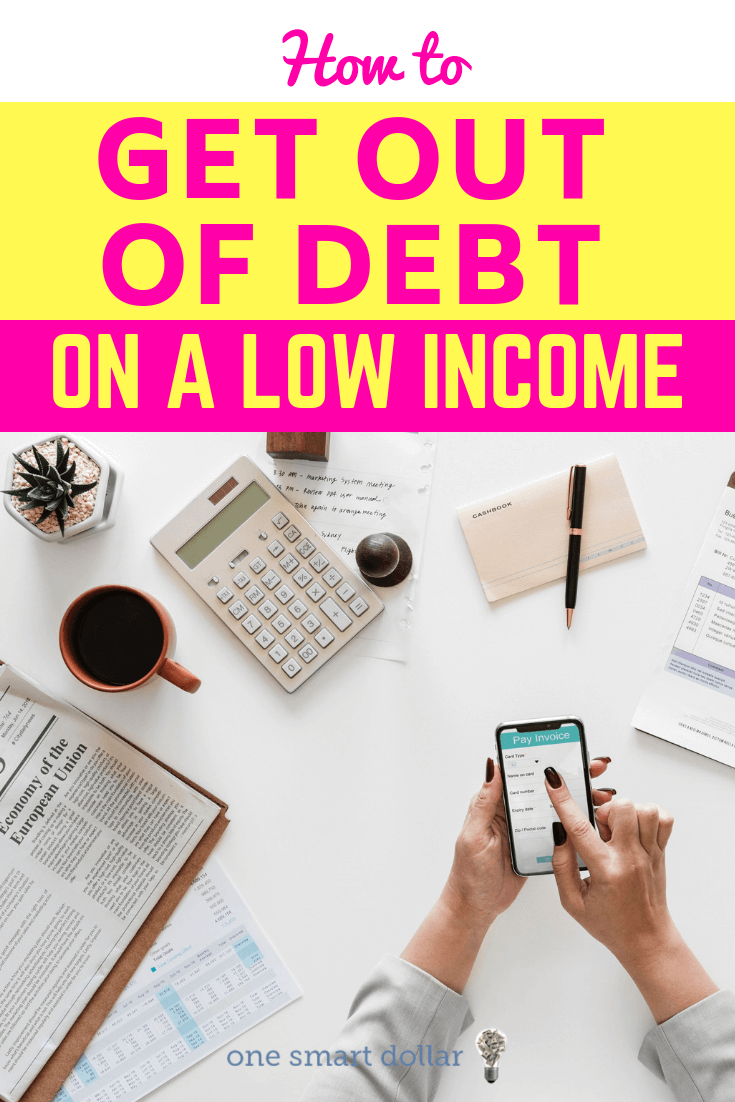
Getting out of debt is a great goal to have, but how do you achieve a debt-free lifestyle on a low income? If you don’t have a lot of money coming in, it’s still possible to take control of your finances and work towards being debt-free.
I’ll share some of my favorite strategies for how to get out of debt on a low income – ones that I know work because I’ve done it myself!
The Playbook for How to Get Out of Debt on a Low Income
Step 1: Spend less than you make
Sounds simple, right? In a perfect world, we’d never spend more money than we actually have. But if that was the case, no one would need debt. With your student loans or a mortgage, debt can be a useful tool to help you get ahead in life.
But other types of debt, especially credit card debt, is an indicator that you’re living above your means. The solution is to take the time to set up a budget and stick to it. Try a free budgeting app like Personal Capital to help you get started.
Step 2: Make frugal living changes
Simply having a budget won’t make a low income go further. Once you have a budget, take time to examine where you might be able to trim the fat. Can you cancel cable and switch to a more cost-effective entertainment option like Sling? Can you commit to bringing lunch to work so you don’t spend as much on eating out during the week? Are there subscription services you could cancel or reduce? You don’t have to make dramatic changes all at once. Every small step you make can help you get out of debt faster.
Note: Signing up for Trim could help you save each month. They will analyze your spending each month and looking for subscriptions you don’t need. They will also help you automatically negotiate your cable, internet, and insurance.
Step 3: Increase your take-home pay
Every dollar matters when your goal is to get out of debt on a low income. Aside from taking a part-time job or starting a side gig, there are creative ways to get more out of the income you already have. Take a look at what’s coming out of your paycheck automatically. Can you cancel an employee benefit, like dental insurance or parking, to increase your check? Aside from sticking to a budget, this is one of the best ways to free up more cash.
Step 4: Refinance high-interest loans
If you have high-interest student loans, car loans, or a mortgage, you should consider refinancing. Getting a lower interest rate on your larger loans means you’ll have less interest accrue over the life of the loan. This translates to more money in your pocket in the long run, and more flexibility as you’re working to get out of debt. If a conventional bank isn’t giving you the rate you want, check out a more progressive lender like SoFi.
Step 5: Consider a balance transfer
In most cases, opening a new line of credit is not the answer for how to get out of debt on a low income. However, if you have a credit card with a high interest rate, you may benefit from a balance transfer.
This is a strategy where you open a new credit card with a 0% interest grace period – usually between 6 and 18 months – and transfer the old credit card balance to the new card. As long as you keep making payments without racking up more debt, this can help you get ahead interest-free for a short time as you work to pay off the balance.
Step 6: Tackle one debt at a time
Becoming debt-free on a low income won’t happen overnight. So take the time to list out all your debts and come up with a plan that works for you. The snowball method is a common strategy to pay off debts, where you pay off your smallest debt first and work toward your largest debt.
Honestly, in the long run, the best strategy is the one that works for you. As long as you keep your focus on one debt at a time, you’ll start to see the light at the end of the tunnel.
Step 7: Set up automatic payments
Most debt payments are due once per month. However, most people get paid every other week. One of the best ways to get out of debt with a low income is to set up automatic payments on your debts that coincide with your regular paydays.
It’s much easier to forget to make a payment or to pay less than you originally planned if you make every payment manually. Plus, if you’re paying every other week, this strategy will also help you sneak in a full extra month’s worth of payments each year, which will go a long way to helping you stretch your income as you pay off your debts!

